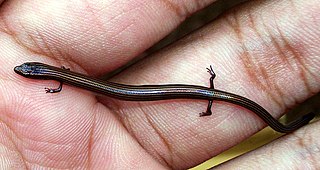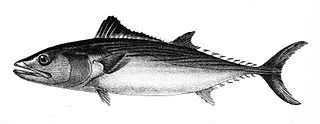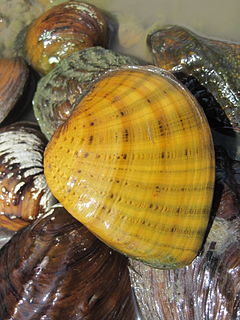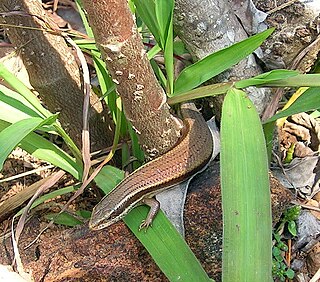
Skinks are lizards belonging to the family Scincidae, a family in the infraorder Scincomorpha. With more than 1,500 described species across 100 different taxonomic genera, the family Scincidae is one of the most diverse families of lizards. Skinks are characterized by their smaller legs in comparison to typical lizards and are mostly found in different habitats except arctic and subarctic regions.

Lygosoma is a genus of lizards, commonly known as supple skinks or writhing skinks, which are members of the family Scincidae. Lygosoma is the type genus of the subfamily Lygosominae.

Riopa is a genus of skinks. It is easy to tell the species apart from most other skinks by bright red coloring on their sides from which they get their name. They also have a bule that runs down the side of their tail.
The white-spotted supple skink is a species of diurnal, terrestrial, insectivorous skink found in parts of tropical Asia. This species was first described by John Edward Gray based on type specimen collected by T. C. Jerdon from Madras, in the Coromandel Coast of South India.
Riopa goaensis is a species of skink found in India.

Riopa guentheri, commonly known as Günther's supple skink or Günther's writhing skink, is a species of skink, which is endemic to India.

Riopa lineata, the lined writhing skink or lined supple skink, is a species of writhing skink. It is known from India, Bangladesh and Myanmar. This skink grows to about 6 cm in length. The body colouration is golden and each scale has a black dot forming longitudinal stripes on the body. It is known to occur from Gujarat to north of Karnataka. In Mumbai this skink has been observed in the Sanjay Gandhi National Park and Aarey milk colony. It is often found under rocks, loose soil associated with termite mounds and ant hills. It is crepuscular. A captive individual accepted termites, mosquito, house flies, ant eggs for about 45 days and was released.
Subdoluseps pruthi, known commonly as Pruthi's skink or Pruthi's supple skink, is a species of diurnal, terrestrial, insectivorous, lizard in the family Scincidae. The species is endemic to the southern part of the Eastern Ghats in South India. The species was first described based on the type specimen from Chitteri hills in Dharmapuri district of Tamil Nadu. Further surveys reveal the presence of similar-looking skinks in nearby hill ranges. Though described in 1977, the holotype was collected in 1929, and yet very little is known or has been published about this species.
Vosmer's writhing skink is a species of skink, a lizard in the family Scincidae. The species is endemic to India.

Sarda chiliensis, the eastern Pacific bonito, is a marine species of bonito. It ranges from Ecuador to Chile. Sarda lineolata, which ranges from Alaska to Mexico was formerly considered a subspecies, as Sarda chiliensis lineolata, but this treatment renders the species geographically disjunct.

The banded supple skink, also known commonly as Harold's writhing skink or Harold Young's supple skink, is a species of skink, a lizard in the family Scincidae. The species is endemic to Southeast Asia.

Ellipsaria lineolata is a species of freshwater mussel, an aquatic bivalve mollusk in the family Unionidae, the river mussels. This is the sole species in the monotypic genus Ellipsaria . This species is native to the drainage systems of the Mississippi River, the Mobile River, the Tennessee River, and the Cumberland River in the United States. It exists in the midwestern United States, and has also been observed in the east coast and as far south as the Gulf of Mexico. The common name of Ellipsaria lineolata is the Butterfly Mussel.

Lygosominae is the largest subfamily of skinks in the family Scincidae. The subfamily can be divided into a number of genus groups. If the rarely used taxonomic rank of infrafamily is employed, the genus groups would be designated as such, but such a move would require a formal description according to the ICZN standards.

Carinascincus metallicus, the metallic cool-skink or metallic skink is a species of skink in the family Scincidae. It is endemic to Australia, found in southern Victoria, as well as in Tasmania where it is the most widespread and common lizard, occurring on many offshore islands in Bass Strait as well as the mainland. It gives birth to live young. It is highly variable in colour and pattern, and may be a complex of closely related species.

Bougainville's skink is a species of skink, a lizard in the family Scincidae. This species is also commonly called the south-eastern slider and Bougainville's lerista.
Lygosoma boehmei is a species of skink, a lizard in the family Scincidae. The species is endemic to Vietnam.
Angel's writhing skink is a species of lizard in the family Scincidae. The species is native to Southeast Asia.

Riopa anguina is a species of skink found in Myanmar and Thailand.
Pope's writhing skink is a species of skink found in Myanmar.
Mochlus tanae, also known commonly as Loveridge's writhing skink or the Tana River writhing skink, is a species of lizard in the family Scincidae. The species is native to East Africa.












